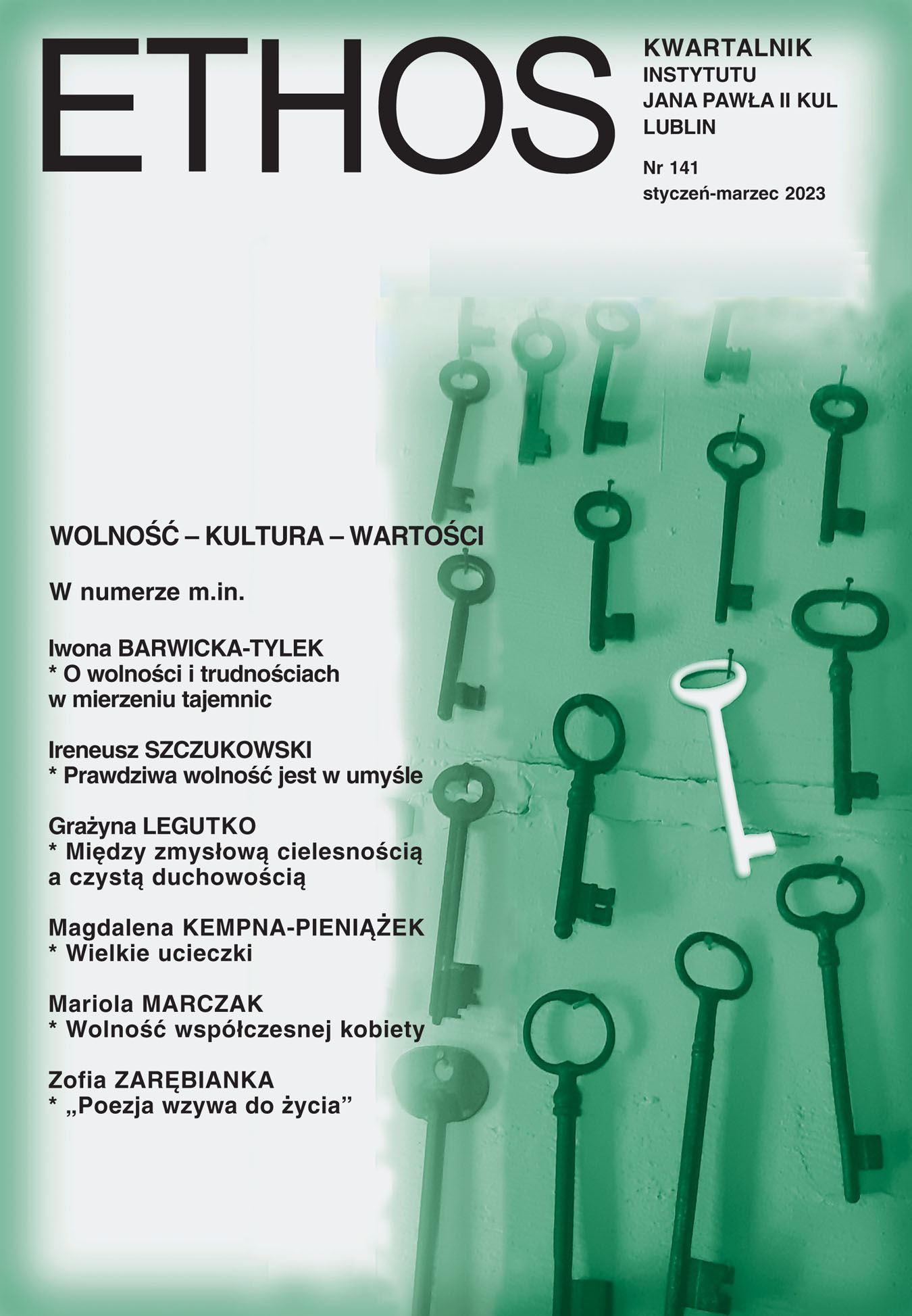WOLNOŚĆ WSPÓŁCZESNEJ KOBIETY WIZERUNKI BOHATEREK FILMÓW KONKURSU GŁÓWNEGO FESTIWALU FILMOWEGO CANNES 2022 UJĘCIE MIĘDZYKULTUROWE
FREEDOM OF THE CONTEMPORARY WOMAN: PORTRAITS OF THE FEMALE CHARACTERS IN THE FILMS INCLUDED IN THE OFFICIAL SELECTION OF THE CANNES FILM FESTIVAL 2022; AN INTERCULTURAL PERSPECTIVE
Author(s): Mariola MarczakSubject(s): Gender Studies, Film / Cinema / Cinematography, Sociology of Art
Published by: Katolicki Uniwersytet Lubelski Jana Pawła II
Keywords: freedom; autonomy; woman; screen representation; interculturalism; Cannes Film Festival 2022;
Summary/Abstract: The author applies the category of freedom understood as an inner experi- ence actualized in the human will and action to the analysis of the portrayal of women in the films included in the Official Selection of the Cannes Film Festival 2022; the films are considered a representative sample of the world’s audiovisual production. An initial quantitative analysis shows that the pres- ence of female characters is almost the same as that of male characters, while freedom is a theme addressed in nearly all the films with a female lead. To analyze the nature of limitations on women’s freedom, the author uses Arthur Schopenhauer’s classification of the types freedom into physical, intellectual, and moral and describes the obstacles faced by the female characters in their pursuit of freedom. In Western societies, obstacles of a physical nature are faced by immigrant women. Women from the Islamic cultural circle experience limitations of a physical, intellectual, and moral nature. Their personal freedom is often restricted, whereas their identity and the will to act as well as creativity are limited by political and legal systems and cultural factors. The analyzed films, however, show that women who live in the Islamic culture make efforts to broaden the scope of their freedom. By engaging the viewer in a more sophisticated discourse and telling stories of close, emotional interpersonal relations, the films from the Far East present a blend of Eastern and Western cultures and encourage reflection on freedom in the moral sense. In Palme d’Or winning Triangle of Sadness, a synthetic yet grotesquely exaggerated portrayal of Western society, emerges a tendency for switching the roles played by men and women in the traditional patriarchal culture, i.e., women become manipula- tors reducing the freedom of men, whereas men have to strive for recognition and autonomy in decision making.
Journal: Ethos. Kwartalnik Instytutu Jana Pawła II KUL
- Issue Year: 36/2023
- Issue No: 1
- Page Range: 186-216
- Page Count: 31
- Language: Polish

